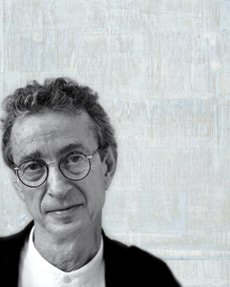Redemption: A Poet’s Surprise
The author gets inspiration in a way he didn’t think possible.
Your content has been saved!
Go to My Saved Content.
Some years ago, I received a three-year fellowship from the Wallace Foundation, a condition of which was that I develop a collaboration with a nonprofit organization. My first thought was to do something with high school teachers. This feeling surprised me, because the occasions I'd had over the years to give readings or classes at high schools I'd found daunting, often terrifying.
Most high school students just don't buy the convention that teachers have something essential or even very interesting to impart. Implicit in the glance, or glare, of pretty much every high school student, I thought, was "Show me, and show me fast." I almost never came away from the experience without a sense of failure.
I'm sure my wish to redeem that feeling had something to do with my decision, but I also have long thought that high school teachers are heroes: They're absolutely essential to the generation and survival of civilization and culture. They bear the brunt every day of the tensions, the anxieties, even the rage of our society. They struggle against cynical attempts to reduce their status and make them more malleable to political machination -- and they're worked like mules.
The Wallace Foundation, established by the creators of the Reader's Digest Association, put me in touch with an organization in New York called the Teachers and Writers Collaborative, and we set about organizing a series of seminars on the teaching of poetry. There was an astonishing response: Hundreds of teachers applied, and we ended up working with a dozen or so -- some from inner city schools, some from wealthy suburbs. There was one private school teacher and even a teacher from my old high school in New Jersey.
When I was in school, we began our study of poetry with boring technical matters, then read a few mostly unfathomable poems. Poetry was presented as an artifact from the distant past, and by the time I graduated, I, like everyone I knew, despised it. I didn't start writing poems until I'd finished my last required English course in college.
But the teachers in my fellowship seminars were very different from the teachers I'd had. They were passionate about poetry, dedicated to making it live for their students, and they eagerly shared the ways they'd developed to do that. One had started a poetry cafe that met after school; another had her students keep diaries about their responses to poems; others had organized workshops, held poetry contests, and produced literary magazines
.The teachers exposed their students to poetry from the past, but they also taught many contemporary poems, ones that were closer to their students' experience and language. And, best of all, they had their students writing, writing, writing. (Poets know that the best way to learn to read poetry is to write it.) Some of the teachers in my seminars were poets themselves, but they all were devoted to both the appreciation and creation of poetry.
I recently heard some university professors lamenting that education students today can receive a degree in secondary-school education while taking nearly no "content courses" that deal with matter rather than method. This certainly wasn't the case with the teachers in our seminars, and it would be terribly sad if teachers were again being produced like those of my youth, people who went through the motions of teaching something they neither knew nor cared anything about, and in the process all but destroyed it.
On my last visit to the Geraldine R. Dodge Poetry Festival, that great biennial four-day carnival of poets and poems now held at Duke Farms, in Hillsborough, New Jersey, my readings and discussions with the hundreds of high school students in attendance were what I enjoyed most. A seminar that was meant to inspire others ended up inspiring me.